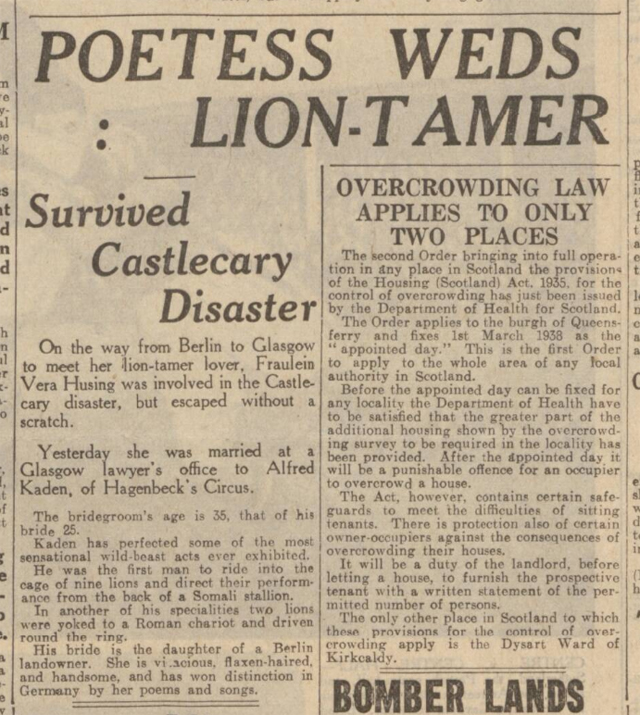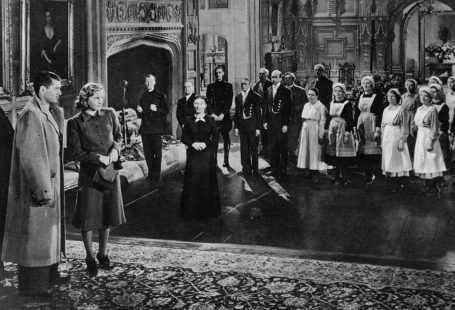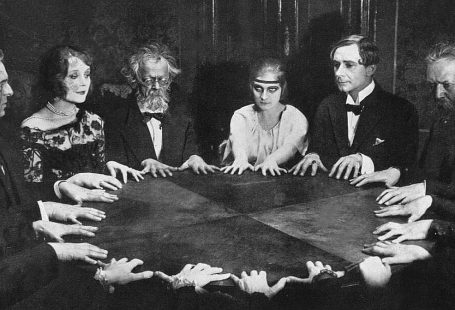In 1928, novelist Radclyffe Hall published her seminal LGBTQ work The Well of Loneliness. Following the story of Stephen Gordon, an upper-class woman who finds love with one Mary Llewellyn and is consequently shunned by society, the work was groundbreaking in its lesbian subject matter.
Radclyffe Hall | Graphic | 30 April 1927
Although it was received favourably by many publications including the Daily Herald and Lady’s Pictorial, Sunday Express editor James Douglas began a campaign on 18 August 1928 to have Hall’s book banned – naming The Well of Loneliness as the ‘Book That Should Be Suppressed.’
As we continue to celebrate Pride Month here at The Archive, we take a look at the reaction towards Radclyffe Hall’s pioneering work, and the persecution it faced at the hands of the English legal system, using newspapers to be found in the British Newspaper Archive.
Register now and explore The Archive
Radclyffe Hall and partner Lady Una Troubridge | The Tatler | 21 March 1934
Before James Douglas began his campaign to ban The Well of Loneliness, Richard King, writing for society magazine The Tatler on 15 August 1928, gave his own review of the book. From the outset, he is both aware of the book’s controversial subject matter, but also its worthiness as a piece of art:
Should I praise it, then I can literally hear the huge army of the narrow-minded hinting that I am in sympathy with is publication. Should, on the other hand, I dismiss it as a novel written on a subject which is unmentionable, then I should condemn a work of considerable art; a story which is poignantly tragic to a degree; one of the few books I have ever read which illustrates the pitiful loneliness of sexual perversity as it is.
Radclyffe Hall | The Sphere | 7 January 1928
It is of course uncomfortable reading King’s words, and his use of the phrase ‘sexual perversity.’ Meanwhile Hall herself somewhat euphemistically describes homosexuality as an ‘inversion,’ her expression limited by attitudes at the time. King, however, does go on to express some sympathy for those whose sexuality marginalises them from mainstream society:
One should no more persecute a person for what he is, providing what he is interferes with no man, than one should persecute those who are born maimed and blind and horribly disfigured…The majority delight in trampling under their feet the people whose nature they cannot understand, no matter how spiritually lofty, how mentally brilliant, how pitiful, or how lonely may be the lives of those upon whom they trample.
King appears to understand the main thrust of the novel, and therefore, Hall’s rallying cry of ‘Give us also the right to our existence.’ But ultimately, he leaves the book’s readers to make up their own minds, and his final image of throwing the novel into the fire would soon become profoundly prophetic:
Considered objectively then, it is a very poignant plea for justice towards the unfortunate intermediate sex. Considered subjectively, you will either be interested by it, or peradventure it will make you too furious and disgusted to do more than throw the book in the fire. We will leave it at that.
Lady Una Troubridge and Radclyffe Hall | The Tatler | 13 November 1935
Meanwhile, events had overtaken Hall and her readers. It was the 18 August 1928 that James Douglas began his campaign to get The Well of Loneliness banned. By 24 August 1928 The Scotsman was reporting on the success of his endeavour, featuring publisher Jonathan Cape’s letter to The Times:
We have to-day received a request from the Home Secretary asking us to discontinue publication of Miss Radclyffe Hall’s novel ‘The Well of Loneliness.’ We have already expressed our readiness to fall in with the wishes of the Home Office in this matter, and we have therefore stopped publication.
Jonathan Cape had actually sent the book to the Home Secretary for his views, and the Home Secretary appeared to agree with Douglas and his supporters, that its ‘continued publication would corrupt the morals of the public, and particularly young people.’ But The Scotsman devotes several paragraphs to Radclyffe Hall’s vigorous defence of her work, and her lament that ‘two years of incessant work, following upon many years of deep study, had suffered at the hands of wilful ignorance and of prejudice amounting to persecution.’
She is profoundly aware of her role as a mouthpiece for those who were unable to express their sexual identity, and identifies her mistreatment as evidence of further societal persecution:
I also claim that, far from encouraging depravity, my book is calculated to encourage mutual understanding between normal persons and the inverted, which can only be beneficial to both and to society at large. I am proud and happy to have taken up my pen in defence of the persecuted. As a pioneer I have been attacked, but then pioneers must always expect that fate; and the attacks in my case, whatever their material consequences to my book, have not come from those whose approval would have conferred any honour.
In November, The Well of Loneliness faced an obscenity trial at Bow Street Magistrates Court. Despite the fact that other novels with a lesbian theme had been published in the same year (including Elizabeth Bowen’s The Hotel and Virginia Woolf’s Orlando) The Well of Loneliness was the only one to be put on trial. But the verdict was unequivocal; the book was to be banned, and its copies destroyed.
The Sheffield Independent reports how Radclyffe Hall, understandably, ‘created a scene‘ when the verdict was laid down, and she herself was determined to continue the fight, resulting in an appeal hearing the following month.
Radclyffe Hall | Sheffield Independent | 17 November 1928
But the Newcastle Journal on 15 December 1928 reports on the failure of her appeal. It was Sir Robert Wallace who addressed the court, reviewing the ruling of Sir Charles Biron a month previously:
Put in a word, the view of this Court is that this is a disgusting book when properly read. It is an obscene book, and a book prejudicial to the morals of the community. In our view, the order made by the magistrate is perfectly correct, and the appeal must be dismissed with costs.
His stinging words, and the resulting verdict, made it impossible for Hall to continue her fight. After leaving the court, Hall addressed the press, saying: ‘If possible, I should continue to appeal from court to court, but I understand it is the end.’
Newcastle Journal | 15 December 1928
And Hall’s books published in Britain faced a further devastating ending. The Aberdeen Press and Journal announced two days later how:
All the seized copies of Miss Radcliffe Hall’s novel, ‘The Well of Loneliness,’ will early this week help to warm the many rooms at New Scotland Yard. It is understood that the copies of the book, which are now under lock and key, will be fed into the furnaces in the basement of New Scotland Yard and be destroyed. The destruction of books will be conducted under the supervision of at least one officer of high rank.
Aberdeen Press and Journal | 17 December 1928
Meanwhile, across the Atlantic, Mr J.S. Sumner, Secretary of the New York Society for the Suppression of Vice, was making moves to have the book suppressed (Western Morning News), and once again The Well of Loneliness was put on trial. But in 1929 a New York court cleared the work of all charges, and printers in Paris, not subject to the restrictive laws of other countries, continued to print the novel.
Western Morning News | 22 December 1928
This meant that The Well of Loneliness was read around the world, selling 100,000 copies a year in the United States during the 1960s, and it has remained continuously in print, despite the actions of the British legal system in 1928.
Our newspapers document the stand that Radclyffe Hall was prepared to make in defence of her work and its message, making her a true pioneer of LGBTQ rights, both her novels and her statements to the press providing a mouthpiece to a marginalised section of society.















